Parenting Bright Kids Who Struggle in School
 As the mom of a daughter with dyslexia, Dewey Rosetti knows first-hand that having a child with a learning difference can take as big a toll on their confidence as their report card. Read more ›
As the mom of a daughter with dyslexia, Dewey Rosetti knows first-hand that having a child with a learning difference can take as big a toll on their confidence as their report card. Read more ›
 As the mom of a daughter with dyslexia, Dewey Rosetti knows first-hand that having a child with a learning difference can take as big a toll on their confidence as their report card. Read more ›
As the mom of a daughter with dyslexia, Dewey Rosetti knows first-hand that having a child with a learning difference can take as big a toll on their confidence as their report card. Read more ›
 Researchers and teacher educators Donna Wilson and Marcus Conyers have found that a gift many effective educators give struggling students is a practical and optimistic mindset coupled with strategies that help them learn successfully. Read more ›
Researchers and teacher educators Donna Wilson and Marcus Conyers have found that a gift many effective educators give struggling students is a practical and optimistic mindset coupled with strategies that help them learn successfully. Read more ›
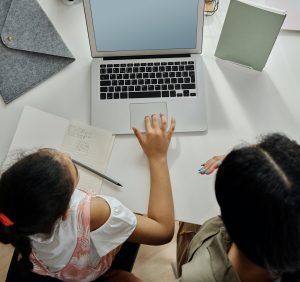 One year after the coronavirus pandemic shuttered classrooms around the country and the world, U.S. parents are guardedly optimistic about the academic and social development of their children, an NPR/Ipsos poll finds. Read more ›
One year after the coronavirus pandemic shuttered classrooms around the country and the world, U.S. parents are guardedly optimistic about the academic and social development of their children, an NPR/Ipsos poll finds. Read more ›
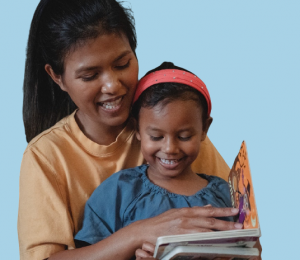 With social distancing (or more accurately, physical distancing) a new way of life during the COVID-19 pandemic, people of all ages are challenged to find different ways to connect socially. However, for children with language disorders—who have difficulties with social interactions in the best of times—the physical distance mandated to prevent the pandemic’s spread can be especially challenging. Read more ›
With social distancing (or more accurately, physical distancing) a new way of life during the COVID-19 pandemic, people of all ages are challenged to find different ways to connect socially. However, for children with language disorders—who have difficulties with social interactions in the best of times—the physical distance mandated to prevent the pandemic’s spread can be especially challenging. Read more ›
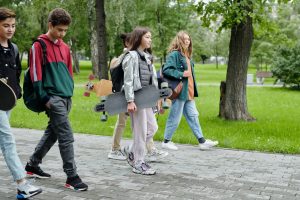 As schools reopen during the COVID-19 pandemic, new health and safety rules may be hard for kids to follow. Wearing a mask all day? Social distancing? Find out which routines may be extra hard for kids who learn and think differently—and how to help. Read more ›
As schools reopen during the COVID-19 pandemic, new health and safety rules may be hard for kids to follow. Wearing a mask all day? Social distancing? Find out which routines may be extra hard for kids who learn and think differently—and how to help. Read more ›
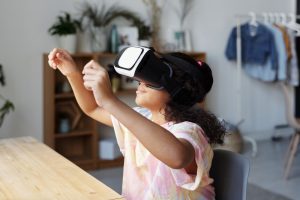 Fortunately, education is progressing to become more inclusive of those with different learning styles and educational needs, but there is still a lot that can be done to make the classroom more inclusive for each and every student. It is becoming more and more apparent that it is time we rethink not just what we teach, but exactly how we teach.
Fortunately, education is progressing to become more inclusive of those with different learning styles and educational needs, but there is still a lot that can be done to make the classroom more inclusive for each and every student. It is becoming more and more apparent that it is time we rethink not just what we teach, but exactly how we teach.
One medium that could provide learning support for students with special needs in the near future is the use of augmented reality (AR) in education. Read more ›
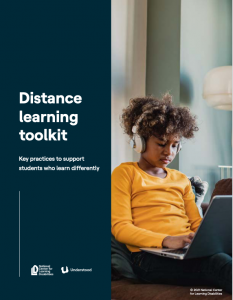 During the COVID-19 pandemic, distance learning has been a challenge for many educators, families, and students. That includes the 1 in 5 students who learn differently.
During the COVID-19 pandemic, distance learning has been a challenge for many educators, families, and students. That includes the 1 in 5 students who learn differently.
A new toolkit — developed in partnership between Understood and the National Center for Learning Disabilities — can help educators meet the needs of all students at this critical moment. Read more ›
After nearly a year of remote learning, parents have a window into their child’s learning style like never before. As a parent, you may have observed some behaviors that make you wonder: does my child have a learning or attention difference or is it just Zoom-fatigue?
We sat down with Chris Harris, MEd, an expert in learning, social-emotional, behavioral and attention challenges, to find out. Read more ›
 What does 2e look like, and how can you best leverage the strengths and interests of your 2e child during distance learning? In today’s episode, Resilience and Engagement for Every Learner (REEL) founders and parents of 2e kids, Callie Turk and Yael Valek, share the joys and silver linings of flexible learning for 2e students. Read more ›
What does 2e look like, and how can you best leverage the strengths and interests of your 2e child during distance learning? In today’s episode, Resilience and Engagement for Every Learner (REEL) founders and parents of 2e kids, Callie Turk and Yael Valek, share the joys and silver linings of flexible learning for 2e students. Read more ›
 What’s not often well-known or well-understood is that students who are gifted may also have a special need or disability— just as students with disabilities may also be gifted. The term “twice-exceptional,” also referred to as “2e,” is used to describe gifted children who, have the characteristics of gifted students with the potential for high achievement and give evidence of one or more disabilities as defined by federal or state eligibility criteria. Read more ›
What’s not often well-known or well-understood is that students who are gifted may also have a special need or disability— just as students with disabilities may also be gifted. The term “twice-exceptional,” also referred to as “2e,” is used to describe gifted children who, have the characteristics of gifted students with the potential for high achievement and give evidence of one or more disabilities as defined by federal or state eligibility criteria. Read more ›